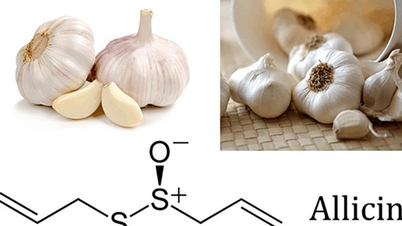Weight plays a key role in diabetes treatment
According to Associate Professor - Doctor - Doctor Tran Quang Nam, Head of the Department of Endocrinology, weight plays a key role in the treatment of type 2 diabetes. Losing 5-10% of weight can significantly improve blood sugar, reduce insulin resistance and limit the risk of cardiovascular complications. However, the weight loss process needs to be closely monitored by a doctor to avoid rapid weight loss causing muscle loss and electrolyte disturbances. He also emphasized the importance of early screening for prediabetes - a stage that can reverse the disease if the patient controls weight and lifestyle well.
Specialist Doctor 1 Hoang Khanh Chi, Department of Endocrinology, said that overweight and obesity are not only risk factors but also direct causes of diabetes. The accumulation of visceral fat increases insulin resistance, causing metabolic disorders of sugar, fat and blood pressure. Therefore, patients need to simultaneously control blood sugar, weight, blood pressure and blood fat to prevent long-term complications. The doctor also recommends that people with a family history of diabetes or overweight and obesity should check their blood sugar regularly for early detection and timely intervention.

Associate Professor - Doctor - Physician Tran Quang Nam, Head of Endocrinology Department, shares content at the program
Photo: BVCC
Do not go on extreme diets.
From a clinical nutrition perspective, specialist 2 Dinh Tran Ngoc Mai, Department of Nutrition - Dietetics, emphasized the principle of "eating enough - right - diverse" to maintain energy balance and metabolic health. Patients should not completely eliminate starch, but should prioritize slow-absorbing starch such as brown rice, oats, sweet potatoes, whole grains to control blood sugar and maintain a feeling of fullness. The diet needs to increase high-quality protein, especially vegetable protein combined with a moderate amount of lean animal protein, while adding lots of green vegetables and whole fruits to provide essential fiber and vitamins. Each patient needs to have a personalized diet based on energy needs, activity level and health status. Reducing 500-700 kcal/day compared to maintenance needs helps achieve the goal of safe weight loss while preserving muscle mass.
Dr. Mai also noted that extreme diets such as prolonged fasting or strict low-carb should not be applied, as they can lead to loss of muscle mass, metabolic disorders and deficiencies of essential micronutrients.
Along with nutrition, specialist Dr. Bui Thi Minh Phuong, Department of Rehabilitation, affirmed that exercise is an important "over-the-counter medicine" to help control the disease effectively. Patients should maintain at least 150 minutes per week for aerobic exercises such as walking, swimming, cycling, combined with 2-3 resistance training sessions to maintain muscle mass and increase energy metabolism. Before exercising, it is necessary to measure blood sugar and have a light meal if taking hypoglycemic drugs or insulin injections to avoid the risk of hypoglycemia during and after exercise. Exercising properly helps control blood sugar, reduce visceral fat and improve cardiopulmonary endurance, thereby improving the patient's quality of life.
Responding to World Diabetes Day, on November 8, Ho Chi Minh City University of Medicine and Pharmacy Hospital in collaboration with Embecta Vietnam Co., Ltd., Abbott Company, Novo Nordisk Company and Boehringer Ingelheim Company organized an online consultation program with the theme "Weight control in diabetic patients - Live proactively, live healthy".

The program emphasizes the importance of combining nutrition, exercise and medical treatment in weight management, helping patients proactively build a healthy and sustainable lifestyle on their treatment journey.
Follow the program at the link: https://bit.ly/KiemsoatcannangnguoibenhĐTĐ
Source: https://thanhnien.vn/loi-ich-kiem-soat-can-nang-tren-nguoi-benh-tieu-duong-185251115141653983.htm


![[Photo] Exciting contest of skillful red fruit picking and creativity from Son La coffee beans](https://vphoto.vietnam.vn/thumb/1200x675/vietnam/resource/IMAGE/2025/11/15/1763201832979_ndo_bl_3-jpg.webp)
![[Photo] General Secretary To Lam receives Governor of Kanagawa Province (Japan) Kuroiwa Yuji](https://vphoto.vietnam.vn/thumb/1200x675/vietnam/resource/IMAGE/2025/11/15/1763204231089_a1-bnd-7718-5559-jpg.webp)



![[Photo] Panorama of the 2025 Community Action Awards Final Round](https://vphoto.vietnam.vn/thumb/1200x675/vietnam/resource/IMAGE/2025/11/15/1763206932975_chi-7868-jpg.webp)


































































































Comment (0)